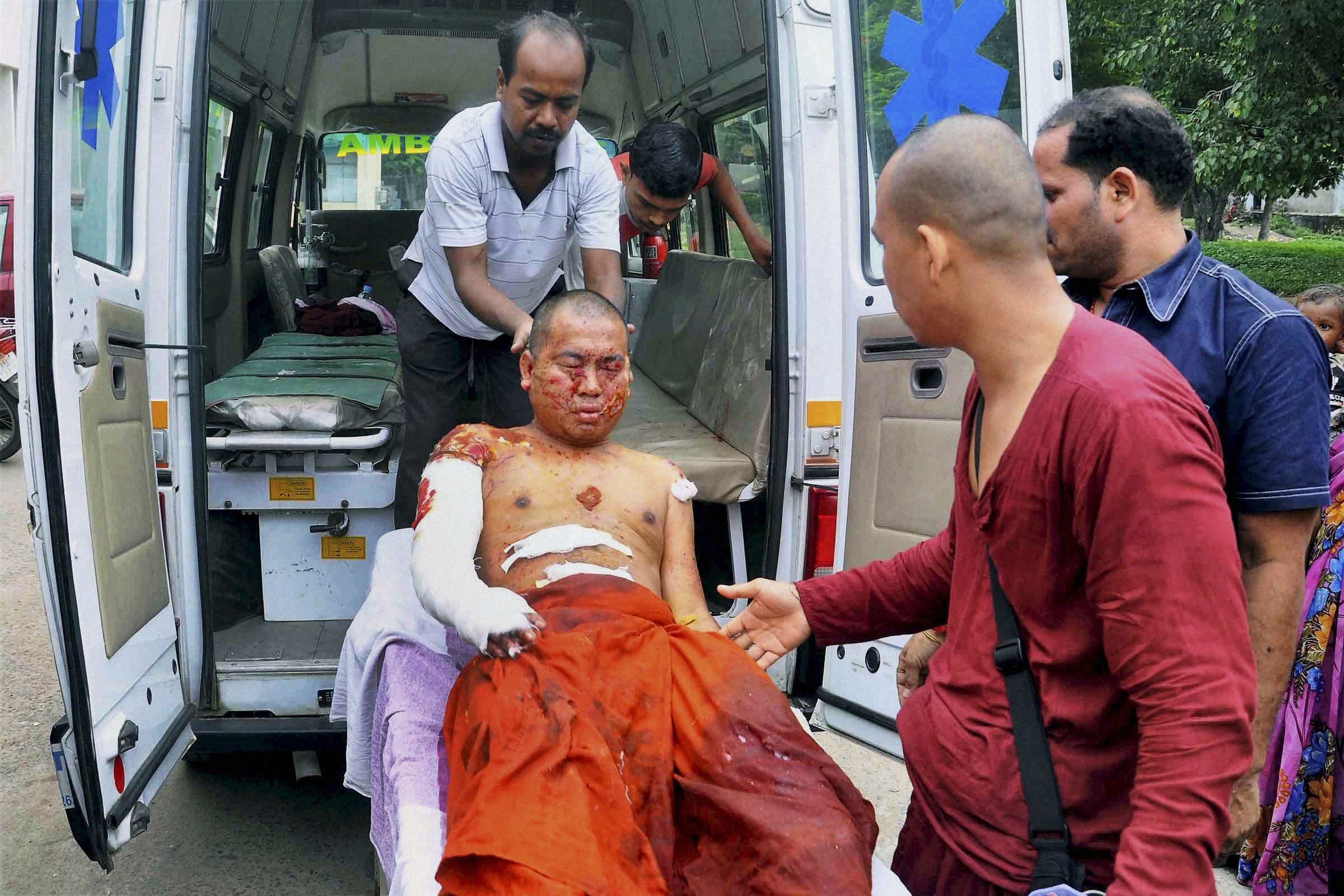
When world champions India played the West Indies in Srinagar on 13 October 1983, the first-ever international cricket match to be played in the state, Kashmir was not a violent place. The Jammu & Kashmir Liberation Front would emerge on the scene only six years later, followed by the Hizbul Mujahideen, the Lashkar-e-Toiba (LeT), the Jaish-e- Mohammad and scores of other militant organisations. And even the Hurriyat Conference surfaced only 10 years later.
But still, when Kirti Azad slammed two sixes in a stumbling Indian innings of 178, only a few in the stadium cheered, catching even the applauders by surprise. Instead, what they witnessed, together with the playing XIs, was beyond their wildest imagination. The 20,000-seater stadium erupted with slogans of “Pakistan Zindabad” every time an Indian wicket fell or the West Indians hit a boundary. People waved posters of Pakistani players, and hit Indian fielders with apples and bottles. When the teams retired for the lunch break, a group of youth invaded the ground and tried to dig holes in the pitch. Some of the youth who were arrested for the offence later went on to become militant commanders.
“We had already drawn up a plan for the occasion,” recalls Mushtaq ul Islam, who led the pitch-invading band of youth that day. “We wanted to make a point and we succeeded. Our protest was against the decision to hold an international match in a disputed territory.” Islam, who went on to become a leading militant commander in the early 1990s, was in jail for 15 years before being released in 2006. “But, we had no idea that even the spectators would join us,” he says.
On 5 March, when India took on Pakistan in a crucial Asia Cup match in Bangladesh, history repeated itself. As Pakistan clinched a nail-biting victory, 67 Kashmiri youth studying at Swami Vivekanand Subharti University, a private institution in Meerut, Uttar Pradesh, ironically on the prime minister’s scholarship, cheered and celebrated the win, an act that soon degenerated into a clash with other students at the university, threatening order in the communally sensitive city. The next day, the students were suspended, packed into buses and left by the roadside in New Delhi. What is more, as the students reached their homes in the Valley, the university lodged a case of sedition against them, only to be withdrawn two days later when the media clamour and Omar Abdullah’s intervention persuaded the UP government to act.
What happened at Meerut was not a stray incident. Four Kashmiri youth were expelled from Sharda University in Noida for the same act. And as the youth were expelled, Pakistan stepped into the ballooning controversy. Its foreign office issued a statement that “the hearts and educational institutions” of the country were always open for Kashmiri students. Not to be left behind, LeT founder Hafiz Muhammad Saeed pitched in with his own offer of scholarship for these students to study anywhere in the world.
This is a familiar strain, something that passes off as a matter of course in the state and doesn’t surprise outsiders who know Kashmir. And this is a reality that is invariable across the Valley’s mainstream-separatist divide. What the experience of the past 25 years has done is to reinforce it. While earlier it seemed a harmlessly natural thing to do in a cricket match, now it has graduated into a political statement laced with a sense of anger the new generation feels at the troubled state of affairs, popularly attributable to New Delhi.
Senior PDP leader Naeem Akhter traces this reaction to Kashmir’s “unique case of borrowed identity”. “This is born out of a still elusive sense of identity,” he says. “Kashmiris can’t relate to India mainly because of the events of the past seven decades. Their own sense of identity is subsumed under the larger identities of India and Pakistan, compounded by the fact that there are no current Kashmiri icons they can rally around. This has persuaded the people to support Pakistan, a country they have grown up seeing as a party to the lingering political dispute over Kashmir but never directly experienced.”
Sociologist Bashir Ahmad Dabla agrees and believes that Kashmiris like Pakistan by default. “It is not Pakistan or India. It is the culture of the conflict that has developed in the state over the past many decades,” he says. “And this culture has produced a deep hatred for the Indian government and reinforced Kashmir’s sub-national identity, which is expressing itself in different forms.”
However, the Valley’s cricketing loyalties do not only manifest during matches between India and Pakistan. Though relatively subdued, the sentiment is articulated variously in different matches. For instance, if Pakistan plays any other cricketing country, including even Afghanistan or Bangladesh, people will still prefer Pakistan to win and celebrate raucously on the streets. On the contrary, no matter which country India plays against, Kashmiris will root for the other team.
“You can’t understand the reaction unless you situate it in the context of the politics of the state,” says Dr Arshid, a leading psychiatrist in the Valley. “And this politics has generated a lethal blend of hate and hurt in search of avenues of expression.”
Were Kashmiris always so unquestionably partial towards Pakistan? Many elders in the Valley don’t think so and point out the example of the tribal invasion of 1948. Many Kashmiri groups in Srinagar protested against the invasion, shouting slogans such as “Hamlawar khabardar, hum Kashmiri hain tayyar (Be wary invader, Kashmiris are ready to face you)”. But the slogans are vastly different now. Not only do Kashmiris ceaselessly chant for Azadi — a template slogan for any demonstration, political or apolitical — but also uninhibitedly express their preference for Pakistan. “Hum Pakistani hai, Pakistan hamara hai (We are Pakistanis, Pakistan is ours),” is a slogan that often rends the air in the public meetings held by Syed Ali Shah Geelani, who leads the Hurriyat’s hardline faction.
“True, there was a time in the early years of Partition when Kashmiris had still to realise and formulate their fondness for Pakistan,” says civil society activist Khurram Parvez. “Partition, its politics, its fallout and implications for Kashmiris were yet to sink in. It came later when India’s control of the state against the will of its people and the subsequent policies, atrocities and deaths turned Kashmiris decisively against the country and look towards Pakistan as some kind of a saviour.”
This reality has persuaded some leaders in the state to discount sports as a viable confidence-building measure between India and Pakistan. “Sports between India and Pakistan have become a substitute for war and hate,” says PDP leader and former deputy chief minister Muzaffar Hussain Baig. “In Kashmir, sports has become an avenue for the expression of resentment against New Delhi among the youth. We should have more cooperation in the sphere of films, art and economy to promote understanding between the two countries.”




